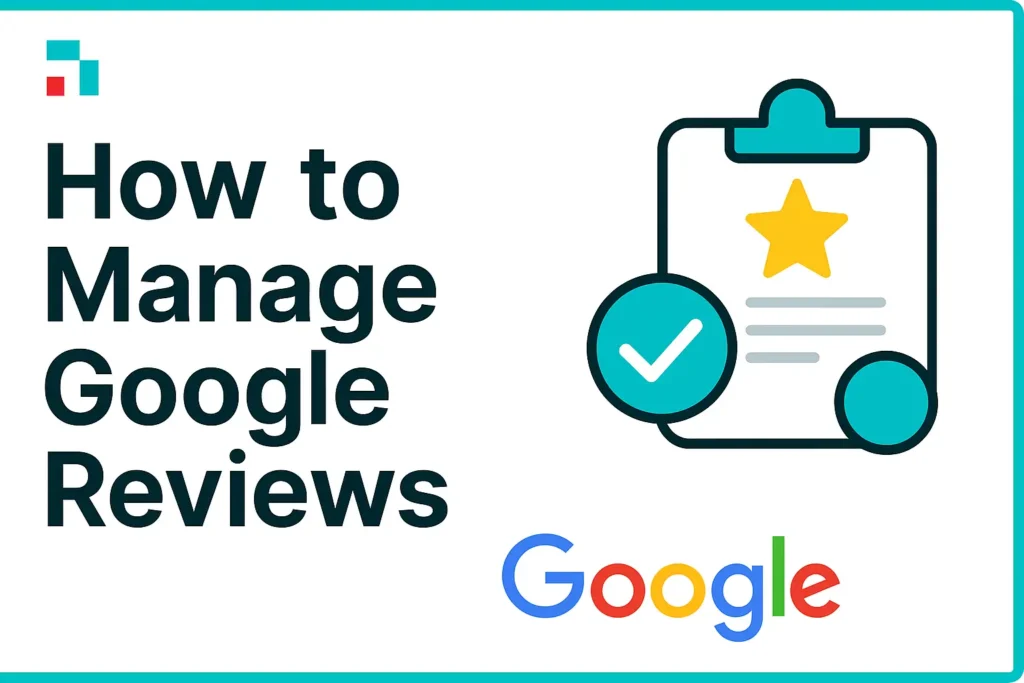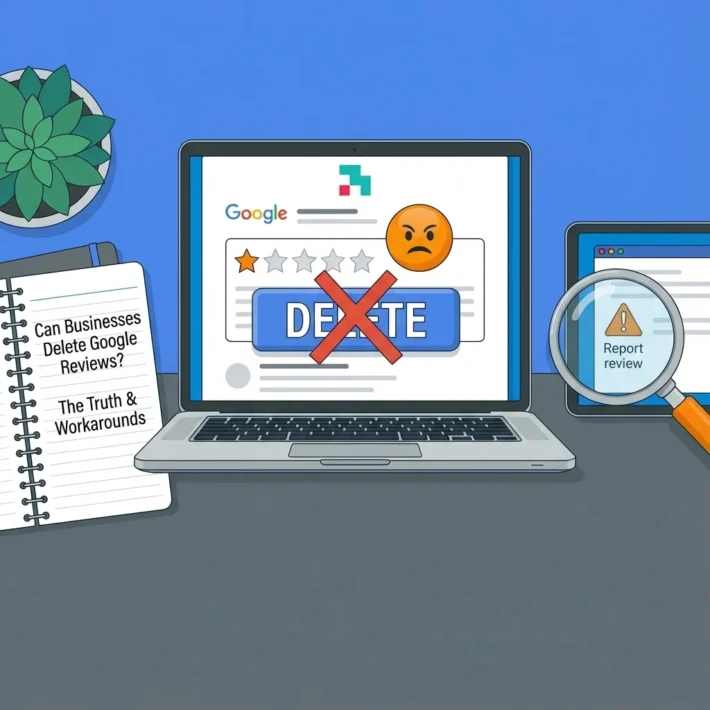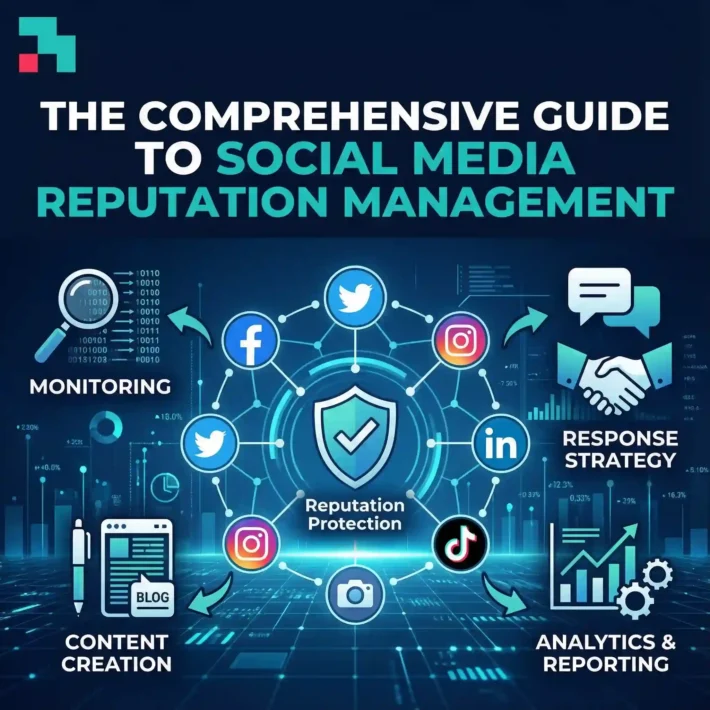How to Manage Google Reviews (Ultimate Business Guide)

Google reviews have become one of the biggest deciding factors for customers choosing where to spend money.
They affect visibility in search, influence buying decisions, and shape how your brand is perceived before someone even clicks your website.
Managing Google reviews for businesses isn’t just about answering the occasional comment – it’s an ongoing process that keeps your online reputation strong and competitive. And we are here to help you by explaining the process and how to manage Google reviews effectively.
Table of Contents
Why Google Review Management Matters More Than Ever
A well-maintained review profile does more than collect stars. It signals to both potential customers and Google that your business is active, responsive, and trustworthy.
Nearly 93% of consumers say that online reviews influence their purchase decisions, making it clear that managing social media reputation isn’t just a nice-to-have – it’s a must if you want to win customers.
Failing to manage your reviews consistently can quietly harm your visibility in local search results. Google uses review activity, response rate, and overall sentiment as part of its local ranking algorithm. If you’re not staying on top of things, competitors who do will get the clicks (and the customers).
Pro tip: Treat Google reviews for businesses like a live conversation with your market. The faster and more thoughtfully you respond, the more it works in your favor.
Steps to Manage Google Reviews Like a Pro
Effective managing Google reviews for businesses is about consistency, accuracy, and using the right tools. Here’s a process that works in 2025 and beyond.
1. Monitor Reviews Daily
You can’t respond to what you don’t see. Check your Google Business Profile dashboard at least once a day, or set up email alerts for new reviews. Even a delay of a few days can make you look unresponsive, especially if the review is negative.
If you manage multiple locations or don’t have the time to keep checking manually, consider using Google Business Profile Management. It ensures nothing slips through the cracks, while keeping all your information updated for better search visibility.
2. Respond to Every Review – Good or Bad
When you respond to Google reviews, you’re shaping how potential customers perceive your business. People don’t just read the review; they also read your reaction.
For positive reviews, go beyond a generic “Thanks!” Mention the customer’s name if it’s public, refer to something specific they wrote, and show genuine appreciation. This makes the reviewer feel valued and signals to others that you take relationships seriously.
For neutral or negative reviews, your tone matters more than anything else. A calm, solution-focused reply shows maturity and professionalism. Avoid arguing or getting defensive – instead, acknowledge their experience, explain how you’re addressing the issue, and invite them to reach out privately if needed.
Pro tip: Even if the customer never replies, the public will see your effort to make things right. That alone can turn a potential deal-breaker into a trust builder.
3. Keep Your Profile Optimized
Your Google reviews are more effective when your Google Business Profile (GBP) is polished and active. An incomplete or outdated profile can undermine the credibility you’re working to build.
Make sure you:
- Post high-quality, recent photos that highlight your products, team, and location.
- Keep contact details and hours accurate, especially during holidays or special events.
- Write a keyword-rich business description that clearly explains what you offer.
- Share fresh updates like promotions, events, or new product launches.
If your profile looks abandoned, even glowing reviews won’t have the same impact. Many businesses strengthen results by pairing steady review collection with professional GBP optimization.
4. Learn From Trends in Feedback
Reviews are a goldmine of insight – essentially free, ongoing market research. By looking for recurring themes, you can spot both weaknesses to fix and strengths to highlight.
Looking For Google Reviews? Claim your Discount Below
- If customers frequently complain about slow service, that’s an area to streamline immediately.
- If they consistently praise a particular staff member or product, you can spotlight that in marketing.
- Track changes over time. If negative mentions are dropping after making improvements, you know you’re on the right track.
The smartest businesses don’t just collect reviews; they analyze them. Even a simple spreadsheet tracking common phrases can reveal patterns you’d otherwise miss. Over time, using this feedback loop can help you stay ahead of competitors and meet customer expectations more effectively.
5. Buy Google Reviews if You’re Just Starting Out
If your business has zero Google reviews, it’s tough to compete – even if your service is great. Most customers will pick the business that looks busier and more trusted. That’s why some businesses choose to buy Google reviews as a way to get that first boost.
When done the right way, it’s safe and effective. The key is to only use real people writing reviews that fit your industry and sound natural. At ReputationManage, we provide affordable reviews from active, aged accounts – all posted gradually so they blend in.
The benefit is simple: you go from looking invisible to looking established, which makes it easier to earn genuine reviews from real customers later. It’s not about faking your reputation – it’s about giving your profile the momentum it needs to start competing today.
Best Practices for Long-Term Google Review Management
Long-term success with how to manage Google reviews isn’t about quick fixes. It’s about building a system that keeps your profile strong month after month. Here are the habits that keep businesses ahead:
Be Consistent, Not Sporadic
One of the biggest mistakes businesses make is treating review management like a one-off project. Responding to a flood of reviews for a few weeks, then going silent, looks unprofessional. Create a review response schedule – even 10 minutes a day works – so your engagement is steady.
Automate Where Possible
If you get a high volume of reviews, automation can save time without losing the personal touch. Use templates for thank-you messages or polite responses to common issues, then customize each reply with a customer’s name and details from their feedback.
Avoid Defensive Responses
It’s tempting to defend yourself in a negative review, but defensive or sarcastic replies only make things worse. Keep your tone calm, factual, and respectful. Future customers are judging your professionalism as much as your product.
Track Your Reputation Over Time
Don’t just respond and forget. Track your average rating, number of reviews, and keywords customers use. This shows whether your reputation is improving or slipping – and helps identify areas for improvement.
You can also take cues from leaders in your niche by comparing review volume and sentiment with top competitors. This makes it easier to set realistic goals for your own profile.
Conclusion
Managing Google reviews is really about consistency and care. When you respond quickly, keep your profile accurate, and actively encourage happy customers to share their experiences, you build a reputation that sells for you 24/7.
It doesn’t have to be complicated. A few minutes a week to reply, check your details, and follow up with recent customers can completely change how people see your business online. And if you want to save time or make faster progress, bringing in experts to help with review generation and profile optimization can give you a real edge over competitors.
The bottom line: treat Google reviews as an ongoing part of your marketing, not a one-time task. The more attention you give them, the more they’ll work for you.
Frequently Asked Questions
How do I manage Google reviews for my business?
Managing Google reviews starts with regularly checking your Google Business Profile for new feedback. Respond to every review-positive, negative, or neutral-within a few days. Keep your profile updated with accurate info, photos, and posts so your reviews work harder for you.
Should I respond to all Google reviews?
Yes. Replying to every review shows customers (and Google) that you care about feedback. A quick “thank you” for positive reviews builds goodwill, and a calm, solution-focused reply to negative reviews can help repair relationships.
Can I delete a bad Google review?
You can’t delete reviews yourself unless they violate Google’s policies (e.g., spam, hate speech, fake content). In that case, you can flag them for removal. Otherwise, your best option is to respond professionally and work to resolve the issue.
How can I get more Google reviews?
Ask customers directly after a positive interaction. Provide them with a direct review link via email, text, or QR code. Keep it quick and easy-if it takes more than a couple of clicks, most people won’t bother.



